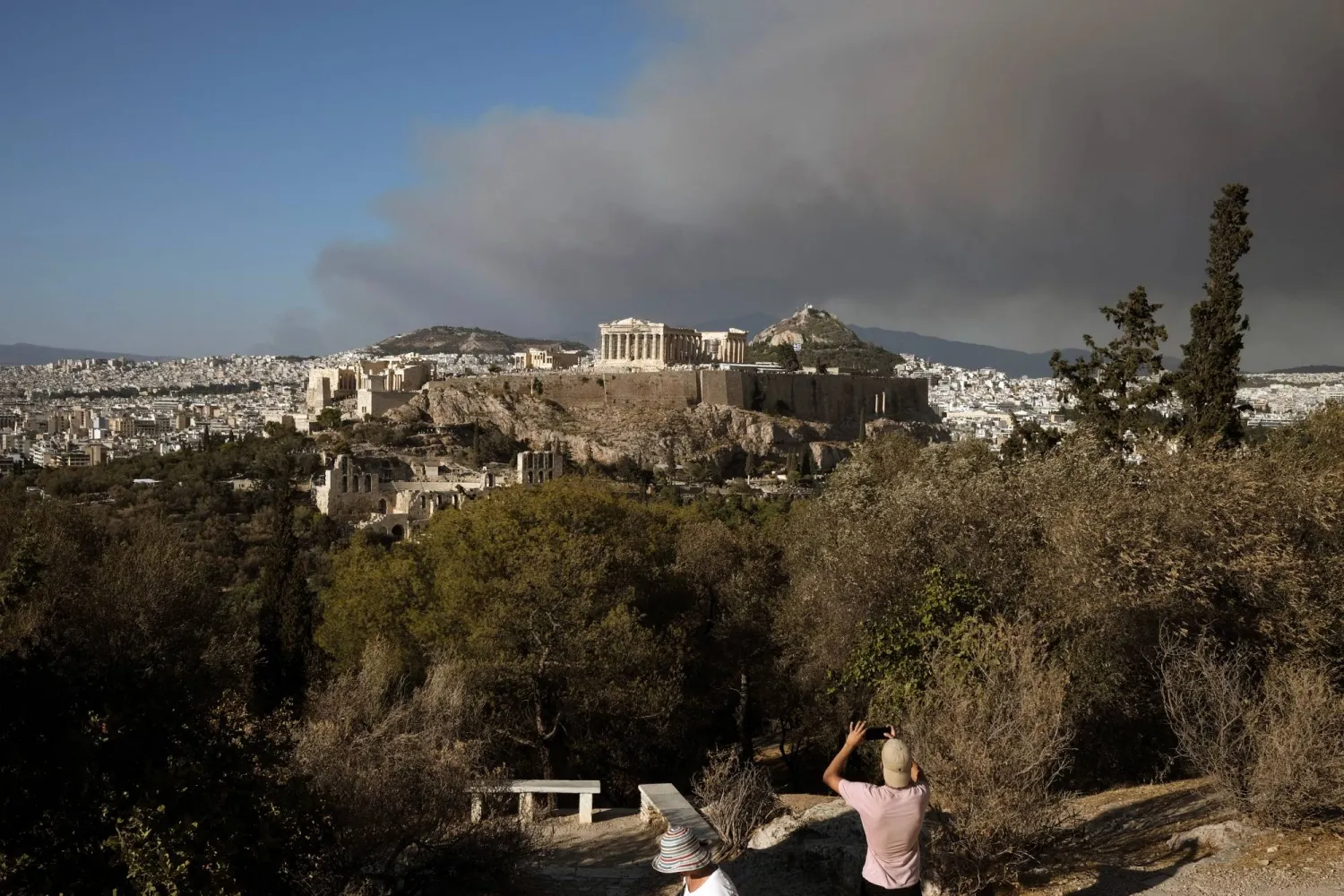Residents fled their homes in the village of Varnava near Greece's capital Athens on Sunday as fire crews struggled to contain a fast-moving wildfire fueled by hot, windy weather.
More than 250 firefighters backed by 12 water-bombing planes and seven helicopters battled the blaze that broke out at 3 p.m and quickly reached the village some 35 km north of Athens.
By late afternoon, a thick cloud of brown smoke hovered over parts of the capital.
Authorities sent evacuation alerts for five nearby areas.
"The fire entered the village within 10 minutes. The winds were very strong," a Varnava resident who fled with her children and dog told Skai TV.
Fire brigade spokesperson Vassilis Vathrakogiannis said the blaze took on very large dimensions due to gale force winds in the area, Reuters reported.
Flames as high as 25 m swallowed up trees and shrubland.
Hundreds of wildfires have broken out across Greece this summer, which just recorded its hottest June and July on record after its warmest winter. Like elsewhere in the Mediterranean, scientists have linked their spread to increasingly hot, dry weather driven by global climate change.
Another blaze in a forested area near the town of Megara, west of Athens, had been contained by Sunday afternoon, the fire brigade said.
Several other regions across Greece were on high alert for fire risk on Sunday and Monday.
"We are expecting a very difficult week," said Kostas Lagouvardos, research director of the Athens Observatory. "If the Varnava blaze is not contained during the night, we will have a problem tomorrow," he said.
Fire-fighting aircraft cease operations at dusk.
On Saturday, Climate Crisis and Civil Protection Minister Vassilis Kikilias said he had called for emergency measures involving the army, police and volunteers to deal with forest fires until Aug. 15.
"Extremely high and dangerous weather conditions will prevail," he said.
"Half of Greece will be in the red."
In June and July, above-normal temperatures were registered in 57 out of 61 days, Lagouvardos said. Greece is forecast to record its hottest ever summer.
Residents Flee as Wildfire Rages Uncontrolled Near Athens

The Parthenon temple atop the Acropolis hill as smoke from a wildfire is seen in the village of Varnava blankets Athens, Greece, August 11, 2024. REUTERS/Elias Marcou

Residents Flee as Wildfire Rages Uncontrolled Near Athens

The Parthenon temple atop the Acropolis hill as smoke from a wildfire is seen in the village of Varnava blankets Athens, Greece, August 11, 2024. REUTERS/Elias Marcou
لم تشترك بعد
انشئ حساباً خاصاً بك لتحصل على أخبار مخصصة لك ولتتمتع بخاصية حفظ المقالات وتتلقى نشراتنا البريدية المتنوعة







